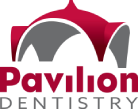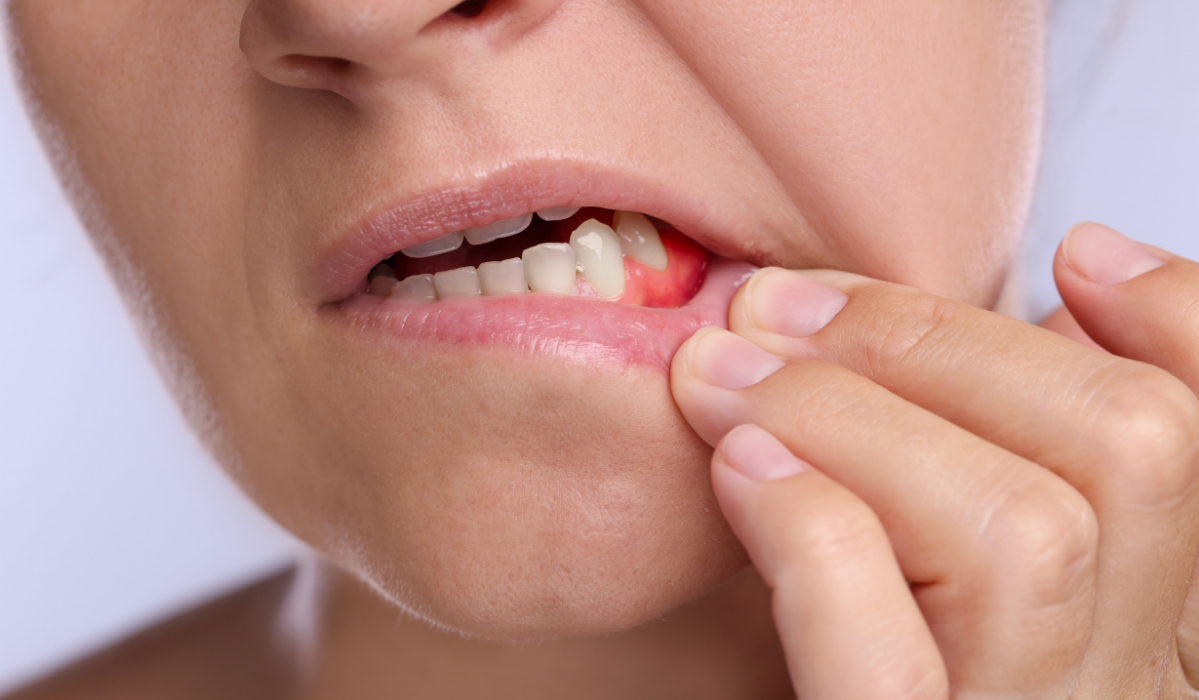Dental implants represent the gold standard for tooth replacement, but patients with gum disease often wonder about their candidacy. At Pavilion Dentistry in St. Catharines, patients frequently ask about the relationship between periodontal health and implants success. Understanding how gum disease affects implants helps patients make informed treatment decisions.
Can You Get Dental Implants with Gum Disease?
Short Answer: Yes, but active gum disease must be treated first.
Patients with gum disease can receive implants, but specific requirements must be met:
- Active periodontal infection must be eliminated completely
- Gum tissues must be healthy and stable
- Adequate bone support must remain after disease treatment
- Patient must demonstrate excellent oral hygiene skills
- Long-term maintenance commitment is essential
The success of dental implants depends heavily on the health of surrounding tissues. Gum disease creates an environment hostile to healing and integration, making pre-treatment essential.
Pre-Treatment Requirements for Implants with Periodontal Disease
Comprehensive Periodontal Evaluation
Before considering dental implants, patients with gum disease require thorough assessment:
Diagnostic Steps Include:
- Measuring pocket depths around all teeth
- Evaluating bone levels through X-rays and 3D imaging
- Assessing overall gum health and inflammation
- Identifying specific bacteria present in the mouth
- Determining extent of bone loss from disease
This evaluation determines whether sufficient healthy tissue remains to support implants successfully.
Active Gum Disease Treatment Protocol
Required Treatments Before Dental Implants:
- Scaling and Root Planing
- Deep cleaning removes bacteria below gum line
- Smooths root surfaces to promote healing
- May require multiple appointments for completion
- Surgical Periodontal Treatment (if needed)
- Flap surgery accesses deeper infection sites
- Guided tissue regeneration restores lost tissues
- Bone grafting may be necessary for implants support
- Antibiotic Therapy
- Eliminates resistant bacterial strains
- Used in combination with mechanical cleaning
- Creates optimal environment for implants
Healing and Stabilization Period
Timeline Requirements:
- 3-6 months of stable periodontal health required
- Regular monitoring ensures infection elimination
- Patients learn specialized oral hygiene techniques
- Tissues heal and mature for optimal implants foundation
This stabilization period is crucial for implants success and cannot be rushed.
How Periodontal Health Affects Dental Implants Success Rates
Success Statistics for Dental Implants in Periodontal Patients
Research-Based Success Rates:
- Well-controlled periodontal patients: 85-95% success over 10 years
- Patients without gum disease history: 95-98% success over 10 years
- Key factor: Current periodontal health, not past disease history
These rates demonstrate that implants can be highly successful in treated periodontal patients.
Factors Influencing Dental Implants Longevity
Critical Success Factors:
- Smoking Status
- Smoking significantly reduces implants success rates
- Must be eliminated before and after treatment
- Affects healing and long-term maintenance
- Systemic Health Conditions
- Diabetes requires excellent blood sugar control
- Other medical conditions need proper management
- Medications may affect healing around implants
- Bone Quality and Quantity
- Adequate bone support essential for implants
- Previous gum disease may have caused bone loss
- Bone grafting may be necessary before dental implants
Preventing Peri-Implantitis Around Dental Implants
Understanding Peri-Implantitis Risk
What is Peri-Implantitis:
- Inflammatory condition affecting tissues around implants
- Similar to gum disease but affects implant sites
- Higher risk in patients with periodontal disease history
- Same bacteria often responsible for both conditions
Early Warning Signs:
- Bleeding around dental implants during cleaning
- Swelling or tenderness near implant sites
- Progressive bone loss visible on X-rays
- Bad taste or odor around implants
Essential Maintenance Protocols for Dental Implants
Professional Care Requirements:
- Frequent Professional CleaningsEvery 3-4 months for high-risk patients
- Specialized instruments designed for implants
- Monitoring for early signs of complications
- Bacterial level assessment and control
- Specialized Cleaning Techniques
- Plastic or titanium instruments prevent implant damage
- Ultrasonic cleaning with specific tips
- Antimicrobial irrigation around implants
- Professional fluoride applications when appropriate
Home Care Strategies for Dental Implants
Daily Maintenance Requirements:
- Specialized Cleaning Tools
- Water flossers for effective plaque removal
- Interdental brushes sized for implant spaces
- Soft-bristled toothbrushes to prevent tissue trauma
- Antimicrobial mouth rinses as supplements
- Proper Cleaning Techniques
- Gentle circular motions around dental implants
- Focus on gum line where bacteria accumulate
- Clean all surfaces including hard-to-reach areas
- Never use abrasive materials on implants
Treatment Planning for Dental Implants with Periodontal History
Customized Treatment Approaches
Individual Assessment Factors:
- Extent of previous bone loss from gum disease
- Current periodontal health status and stability
- Patient compliance with oral hygiene protocols
- Systemic health factors affecting healing
- Smoking status and willingness to quit
Each patient requires personalized treatment planning based on these individual risk factors.
Advanced Treatment Options
When Standard Approaches Aren’t Sufficient:
- Guided Bone Regeneration
- Rebuilds bone lost to periodontal disease
- Creates adequate support for implants
- May require several months of healing
- Computer-Guided Dental Implants Placement
- Ensures optimal positioning in compromised sites
- Avoids areas of insufficient bone or tissue
- Improves outcomes in challenging cases
Long-Term Success with Dental Implants After Gum Disease
Ongoing Monitoring Requirements
Lifelong Care Protocols:
- Regular examinations assess dental implants health
- Radiographic monitoring detects bone changes early
- Periodontal status evaluation prevents disease recurrence
- Maintenance schedule adjustments based on individual needs
Patient Responsibility for Dental Implants Success
Essential Patient Commitments:
- Excellent daily oral hygiene without exception
- Regular professional maintenance appointments
- Immediate reporting of any concerning symptoms
- Lifestyle modifications to support oral health
- Long-term compliance with care recommendations
At Pavilion Dentistry in St. Catharines, the experienced team specializes in complex implants cases, including patients with periodontal disease history. With proper treatment planning, preparation, and ongoing care, patients with gum disease can achieve excellent dental implants outcomes.
Ready to explore dental implants despite gum disease concerns? Contact Pavilion Dentistry at 905-641-2242 to schedule a comprehensive periodontal evaluation and discuss your treatment options.


0 Comments